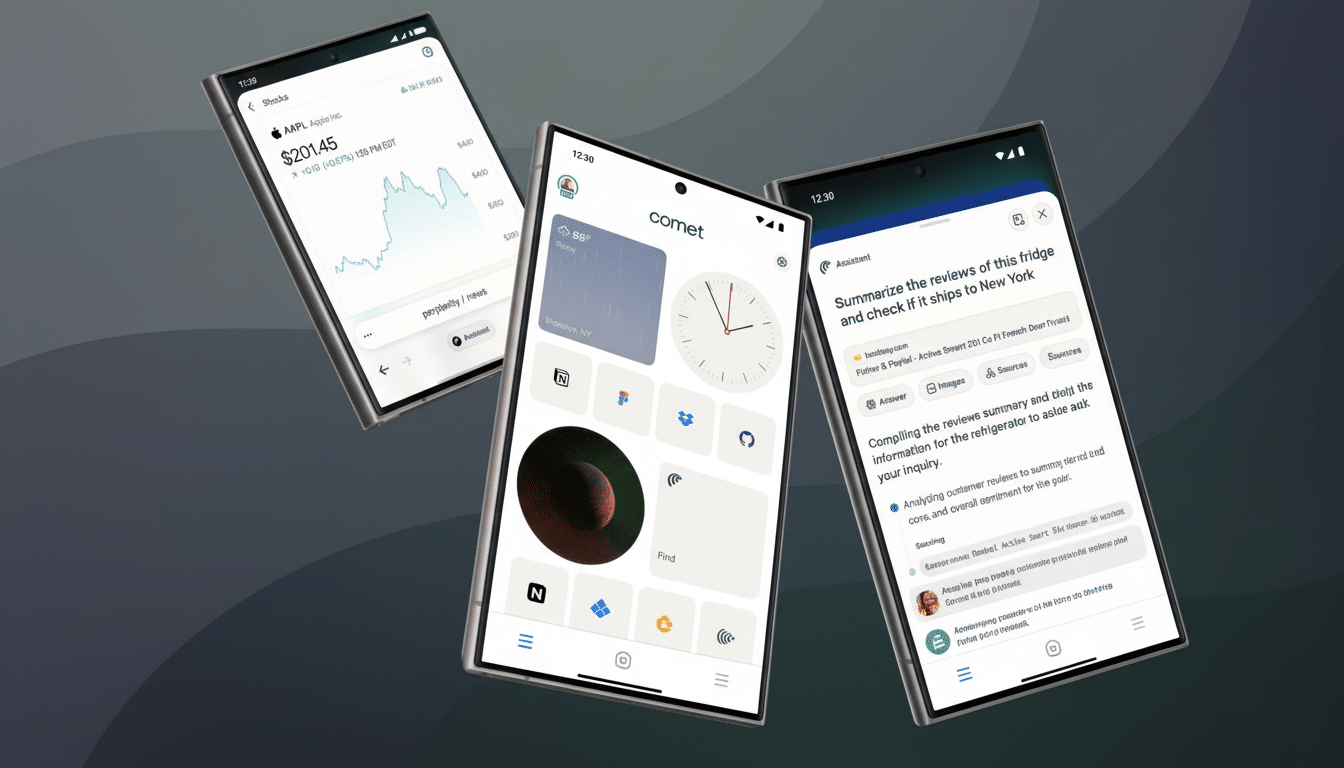Perplexity has launched Comet, its AI-first mobile browser, to the public on Android. With an early access phase behind it, the app has now hit the Play Store with voice-native search, AI-assisted reading, and multi-tab reasoning for smartphones — all without needing a desktop subscription.
The pitch is simple: rather than typing queries into a search box and sifting through links, you talk to Comet’s assistant or just highlight what’s on-screen, and it responds with summaries that are sourced to known sites like Wikipedia and suggestions for next steps. It’s a browser that you can speak to, and you don’t have to repeat yourself every paragraph.

What Comet adds to Android: voice-native search and tab reasoning
Voice is a first-class input. You can ask the assistant to recap a dense article for you, compare details from different open tabs, or pull out action items from a product page. It can also quiz you on a subject you’re studying, or help plan a purchase with parameters you set — like budget, size, and battery life.
Comet’s AI not only generates an answer; it also surfaces its reasoning as it goes. That transparency — a design decision that Perplexity is also known for in its other services — allows users to validate results and iterate fast. In use, it plays less like a search box than an on-page research partner that knows what you’re looking at.
Beneath the surface, it is still a full browser. You’ll need to register on a third-party site, but once you do you receive essentials including tab management (ideally this thing actually gets updated now and again) and a robust ad-blocker that kicks out pop-ups and distractions while the AI serves your summaries, making them easier to read and potentially lowering data use on crowded sites.
Early access to general availability on Android
The Android rollout for Comet comes after a rapid ramp from limited testing to open availability. On desktop, early test builds were locked behind more expensive plans when the project was first announced. On mobile, the company is taking away that friction: anyone can download Comet and immediately begin using its core functions.
That matters on a platform where AI assistance could receive the most daily use. Android runs on about 70 percent of smartphones globally, according to StatCounter, and Chrome controls more than 60 percent of the market for mobile browsers. Comet isn’t seeking to replace every feature of a traditional web browser; it’s betting that integrated AI workflows will prove so compelling that they chip away at habit.
How it stacks up against AI-infused rivals
AI has been warmly received by the mobile browser field. Arc’s mobile app goes heavy on “browse for me” summaries, Opera has its Aria assistant offering generative answers, Brave includes its Leo model, and Microsoft’s Edge ships with Copilot. Google is also integrating generative capabilities and Gemini into its own universe.

Comet’s differentiator is contextual breadth. Because the assistant can reference other open tabs and all of the live page you’re reading, it’s useful for tasks that cross documents — like pulling an itinerary together from three travel guides and two booking pages, or comparing spec sheets across a number of retailer listings. It feels very different from the “just put a chatbot in the address bar” we’ve been seeing because of voice-first input and context with transparent reasoning.
Privacy and reliability considerations for AI browsers
Any AI-powered browser prompts familiar questions. Summaries may leave out subtlety or reflect issues in source material. Fact-checking still has a place, and the fact that Perplexity focuses its users’ attention on surfacing citations is a helpful nudge toward holding one another accountable. Users should also look into permissions, particularly microphone access for voice interactions, and see how blocking changes the way trackers and ad scripts work on their most-visited sites.
On-device performance will matter too. Low-end hardware can be burdened by AI features that tax battery and memory. Initial impressions are that the ad-blocker can help keep page bloat down, but heavy multitasking — that might mean opening up a number of media-rich tabs at once — could still bring your browser to its knees depending on what device you’re using.
Who should try it: students, professionals, hands-free users
So, if you frequently read long articles, compare products, or balance content across tabs, the assistant might help speed that up by providing a summary, contrast, or extract of key points. The voice-forward approach is probably best for students, busy professionals, and people who want a hands-free browsing experience.
Comet, which has a robot emoji for an official logo, is now available to test out for Android users wondering what a browser built around an artificial intelligence engine might look like — rather than just a search service augmented with the advice of a chatbot.
The true test will be if it accelerates the route from question to answer without a lot of friction. With the release of its Android app, enabling public access, we’re about to find out on a mass level.

